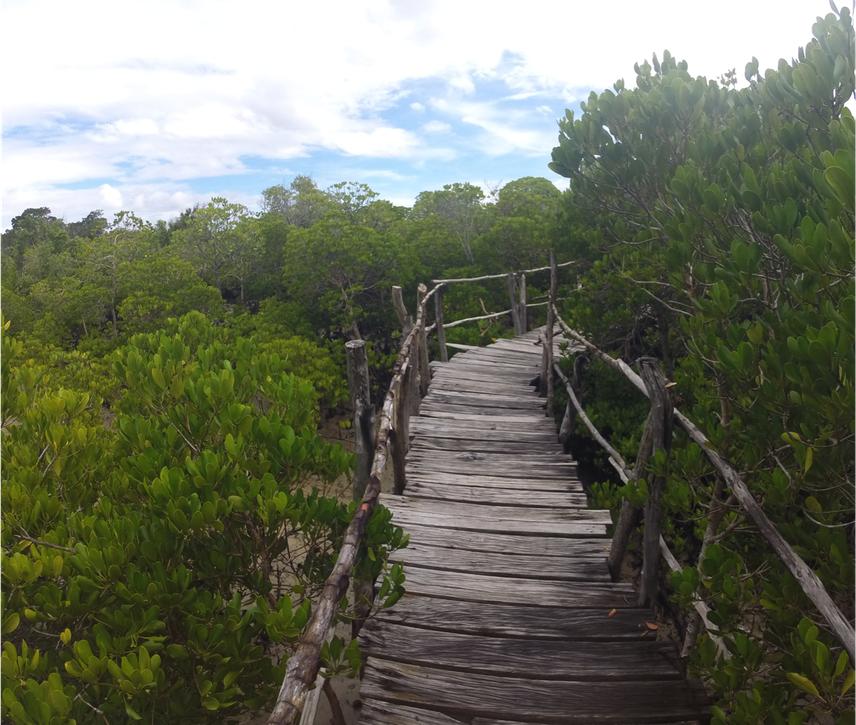Robert Mzungu Runya
The project will be addressing the increased human pressure on mangroves and marine resources in Gazi Bay, Kenya especially from over-harvesting and poaching. Gazi Bay is largely a fisher community whose livelihoods depend on a healthy mangrove ecosystem. Mangroves in Gazi Bay have been exploited for firewood and construction materials. Likewise, mangroves provide nursery and breeding grounds for fish, buffer the shoreline from extreme wave energy and are important carbon sinks. This project will integrate business, IT, scientific and local approaches to promote non-consumptive utilization of mangroves thus enhancing their conservation and management via sustainable ecotourism activities in the area. Sustainable ecotourism in the context of this project will provide economic opportunities, protect natural and cultural heritage and enhance the quality of life. The project shall capitalize on the willingness of Gazi Bay community to share their tradition, lifestyle and culture with a view to encourage eco-friendly tourism activities.

Boardwalk.
Gazi Bay hosts a mangrove ecotourism project, an enterprise established in 2006 with start-up funding from Overijse municipality (Belgium) to construct an initial 300m-nature boardwalk. The aim is to generate economic gains that would be invested in community benefits and mangrove conservation. However, the project is at the point of collapsing due to various challenges including lack of capacity to manage the project, low influx of tourists and lack of technical support making it less profitable. Once collapsed adjacent mangroves will be exposed to human poaching and over-harvesting. Mangroves provide various ecosystem goods and services such as construction materials, firewood, and also act as efficient carbon sinks, offer shoreline protection and are an important nursery and breeding grounds for fish and many marine fauna. For this project to be effective, we shall integrate the potential benefits derived from ecotourism with conservation management and community development.
Sustainable ecotourism in the context of this Rufford project will not only balance the needs of the environment but also the needs of the people. Likewise, the connection between the mangrove ecosystems, adjacent ecosystems and the local people will be maintained in all the stages of the project implementation.
Specifically, our RSG project will utilize a combination of research, local management, IT and marketing strategies to achieve self-sustenance. This project is designed to provide economic opportunities, protect marine environment and at the same time improve community well being in Gazi Bay. The project targets to achieve three specific objectives;
(i) improve management by identifying challenges and opportunities of the project
(ii) marketing and promotion using various media platforms including in the web, social media and visits
(iii) capacity building and education of the community involved in the project in marketing, management, mangrove restoration and awareness campaigns.
Sustained ecotourism activities will generate income for the community, create direct and indirect opportunities to women and youths, boost the business environment, increase mangrove forest cover through replanting, and conserve marine biodiversity. Qualitatively the project will empower the local community in Gazi Bay to have a sense of pride and awareness of the importance of their natural resources and control over their own development.